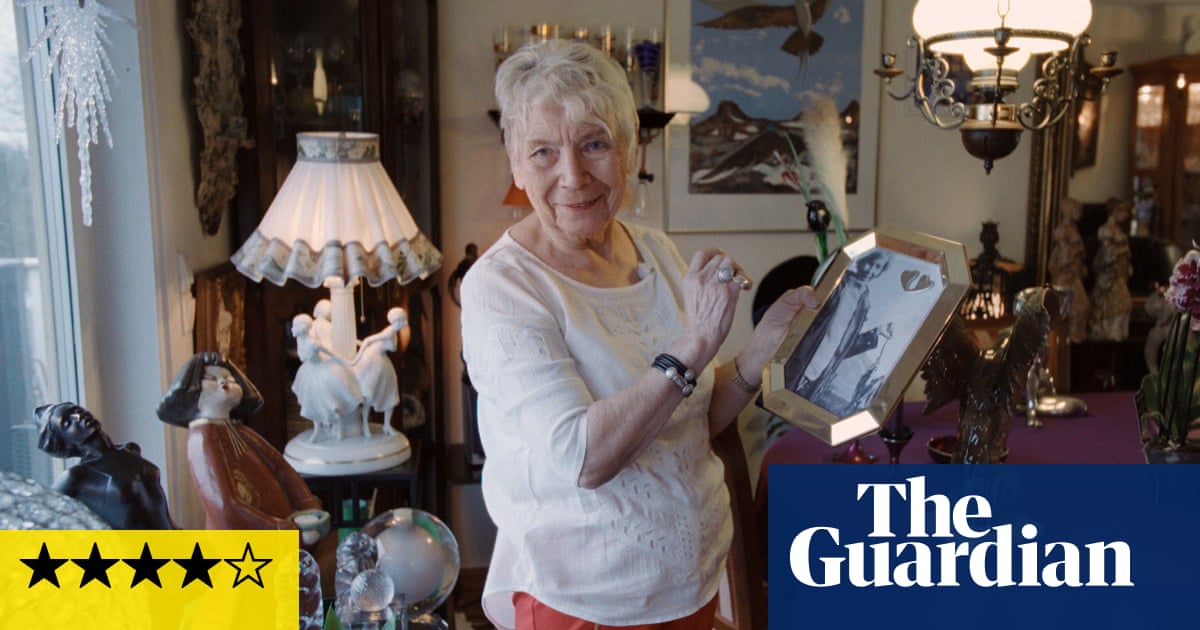
“This is the beginning,” says the voice of Niamh Algar, “of a film called The Wonder.” As Matthew Herbert’s haunting seascape of a score swoops, clangs and swirls, we see a film set – scaffolded buildings within a vast studio, much like the opening of Pedro Almodóvar’s recent short film The Human Voice. Ace cinematographer Ari Wegner’s camera slowly ventures into one of these sets to rest upon the face of Florence Pugh, as Algar’s hypnotic narration continues, telling us: “The people you are about to meet, the characters, believe in their story with complete devotion.”
It’s 1862 and we’re on a boat. A decade after the great famine, English nurse Elizabeth “Lib” Wright is travelling to a village in the Irish midlands to attend local girl Anna O’Donnell (Kíla Lord Cassidy), an apparently healthy 11-year-old who hasn’t eaten for four months. Anna’s parents (whose son has already “gone over”) think it’s a miracle and news of this wonder is starting to spread, with visitors arriving daily to see the girl who lives on “manna from heaven”. A committee of notables, including the imposing Father Thaddeus (Ciarán Hinds) and the pseudo-science-minded Dr McBrearty (Toby Jones), has been established to verify or debunk tales of divine intervention.
Having served as a nurse in the Crimean war, Lib has seen her share of horrors, tending to dying soldiers – “a privilege”. Here, however, her job is merely to watch; to spend two weeks alternating eight-hour shifts with Sister Michael (Josie Walker) and assess whether Anna is being secretly fed. Neither observer is allowed to discuss their findings with the other and neither may intervene – something that runs entirely contrary to Lib’s instincts, both personal and professional. Lib is also quietly nursing her own grief, self-medicating her way through nights of personal anguish.
When Lib’s suspicions fall upon the devoted affections of Anna’s mother (played by Kíla’s real mother, Elaine Cassidy), the daughter’s health seems to falter. But is uncovering an empirical “truth” more important than protecting a child from what journalist Will Byrne (Tom Burke) calls “murder by degrees”? Is Anna’s fasting an act of sacrifice or abuse? Where do rational certainty and moral ambiguity meet?
The Wonder is based on a 2016 novel by Emma Donoghue, who wrote the screenplay for Lenny Abrahamson’s Oscar-feted 2015 adaptation of her bestseller Room. Here, Donoghue shares script credits with Chilean director Sebastián Lelio and screenwriter Alice Birch, who wrote Pugh’s breakthrough feature Lady Macbeth. It’s an intriguing creative cocktail. Donoghue says she was originally inspired by real-life tales of “fasting girls”, in particular a case in which “nurses were hired by the Times newspaper to watch a girl in Wales”, which she calls an “unholy alliance of the medical establishment and the media establishment”. To this gripping setup, Birch (whose ear for dialogue proved so sharp in the TV adaptation of Normal People) lends a very modern sense of intimacy, with conversations between Lib and Anna (and later with Will) bristling with restrained emotional conviction.
As for Lelio, who previously explored the psychodramas of a cloistered religious community in Disobedience, he bookends this tale of religion and science with a cinematic framing device (apparently inspired by Jean-Luc Godard’s Le Mépris) that draws the audience’s attention to their own desire to believe in fictions – to willingly suspend their disbelief. “We are nothing without stories,” says the opening narration and throughout we watch characters invent and recount their own realities. Whether it is the guilty fear of purgatorial fire or the speculative proposition of harnessed magnetic energies, each individual’s narrative involves a leap of faith – some destructive, some redemptive, all intertwined.
Which story the audience takes from The Wonder is very much up to them. Personally, I saw echoes of Hans-Christian Schmid’s Requiem, Jessica Hausner’s Lourdes and Dietrich Brüggemann’s Stations of the Cross – films in which religious beliefs have profoundly physical consequences. Others will see the ghost of the Irish famine reflected in Anna’s starvational plight, an element amplified by Will’s horrific backstory. Perhaps eating disorders and child abuse are the real heart of the matter. Either way, few will remain unmoved by this intriguingly adventurous and thought-provoking drama.
In selected UK cinemas from Wednesday and on Netflix from 16 November












